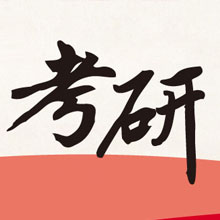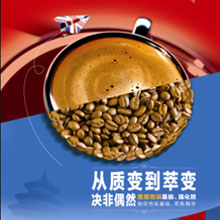高二英语语法:常用前缀和后缀
2015-11-12 18:03 互联网
关于高二英语语法,英语语法对大家的学习非常重要,大家应该重视英语语法的学习,英语语法知识点比较繁杂,要学好英语语法,大家必须对语法进行整理。下面小编为大家提供高二英语常用前缀和后缀,供大家参考。
Unit One Word Formation
(Derivation 派生词)
1. 常用前缀
anti-(antipollution)
auto-(automobile)
co-(cooperate)
dis-(dishonest)
en-(enjoy)
in-(incorrect)
il-(illegal)
im-(impossible)
ir-(irregular)
inter-(international)
mis-(misunderstand)
multi-(multinational)
non-(nonsmoker)
out-(outnumber数量上超过)
over-(overwork)
post-(postwar)
pre-(preview) /re-(review) aero-(aeroplane)
sub-(subconscious)
super-(superstar)
tele-(telephone)
un-(unlock)
de-(decrease)/in-(increase)
mini-(miniskirt)
semi-(semicircle)
self-(self-control, self-tauht)
kilo-(kilometre)
2.常用后缀
-ability(capability)
-ibility(possibility)
-al(national a./arrival n.)
-an(Eropean)
-ian(musician)
-arian(vegetarian) -ee(employee)/-er(employer)
-or(actor) /-ss(actress)
-ar(scholar)
-hood(neighborhood)
-ist(artist)
-ese(Chinese)
-ness(kindness)
-y(difficulty n./noisy a.)
-ty(safety)
-ity(activity)
-th(wealth)
-ence(different—>difference)
-ance(ignorant—>ignorance) -dom(freedom)
-ation(invite—>invitation)
-tion(pollution)
-sion (discussion)
-ing(swimming)
-ure(failure)
-ment(development)
-age(marry—>marriage)
-ship(friendship, kingship)
-ism(socialism)
-ful(useful)
-ive(act—>active)
-ous(poisonous)
-ly(friendly,quickly)
-some(troublesome)
-en(wooden a./sharpen v.) -able(believable)
-ible(responsible)
-ize (modernize)
-ward(backward ad.)
-ify(beautify)
Unit Two
Word Formation
(Conversion & Compounding)
1.Conversion
(1)v./n.
try, visit, work, search, guess, request, demand, change, swim, look, wash, seat, interest, aim, shout, kick, cry, desire, doubt, love etc.
(2)a./ad.
long, back, straight
(3)a./n.
wrong, good, right
2.Compounding
(1)
homework, sunrise, headache, background, downtown, someone, nothing
(2)
guide-book,warm-hearted, well-known,good-looking, air-conditioned, left-handed
(3)
folk song, water pipe, dining room, post office
Unit Three
The Structure for Emphasis
The Emphatic –It
It+be+被强调成份+that/who…
Eg:
1.Bob went to the theatre with Jane last Sunday.
->It was Bob that/who went to the theatre with Jane last Sunday.
-> It was with Jane that Bob went to the theatre last Sunday.
-> It was to the theatre that Bob went with Jane last Sunday.
->It was last Sunday that Bob went to the theatre with Jane.
责任编辑:张艳
联系我们
版权及免责声明
① 凡本网注明“稿件来源:新东方”的所有文字、图片和音视频稿件,版权均属新东方教育科技集团(含本网和新东方网)所有,任何媒体、网站或个人未经本网协议授权不得转载、链接、转贴或以其他任何方式复制、发表。已经本网协议授权的媒体、网站,在下载使用时必须注明“稿件来源:新东方”,违者本网将依法追究法律责任。
② 本网未注明“稿件来源:新东方”的文/图等稿件均为转载稿,本网转载仅基于传递更多信息之目的,并不意味着赞同转载稿的观点或证实其内容的真实性。如其他媒体、网站或个人从本网下载使用,必须保留本网注明的“稿件来源”,并自负版权等法律责任。如擅自篡改为“稿件来源:新东方”,本网将依法追究法律责任。
③ 如本网转载稿涉及版权等问题,请作者见稿后在两周内速来电与新东方网联系,电话:400-0551-888。



